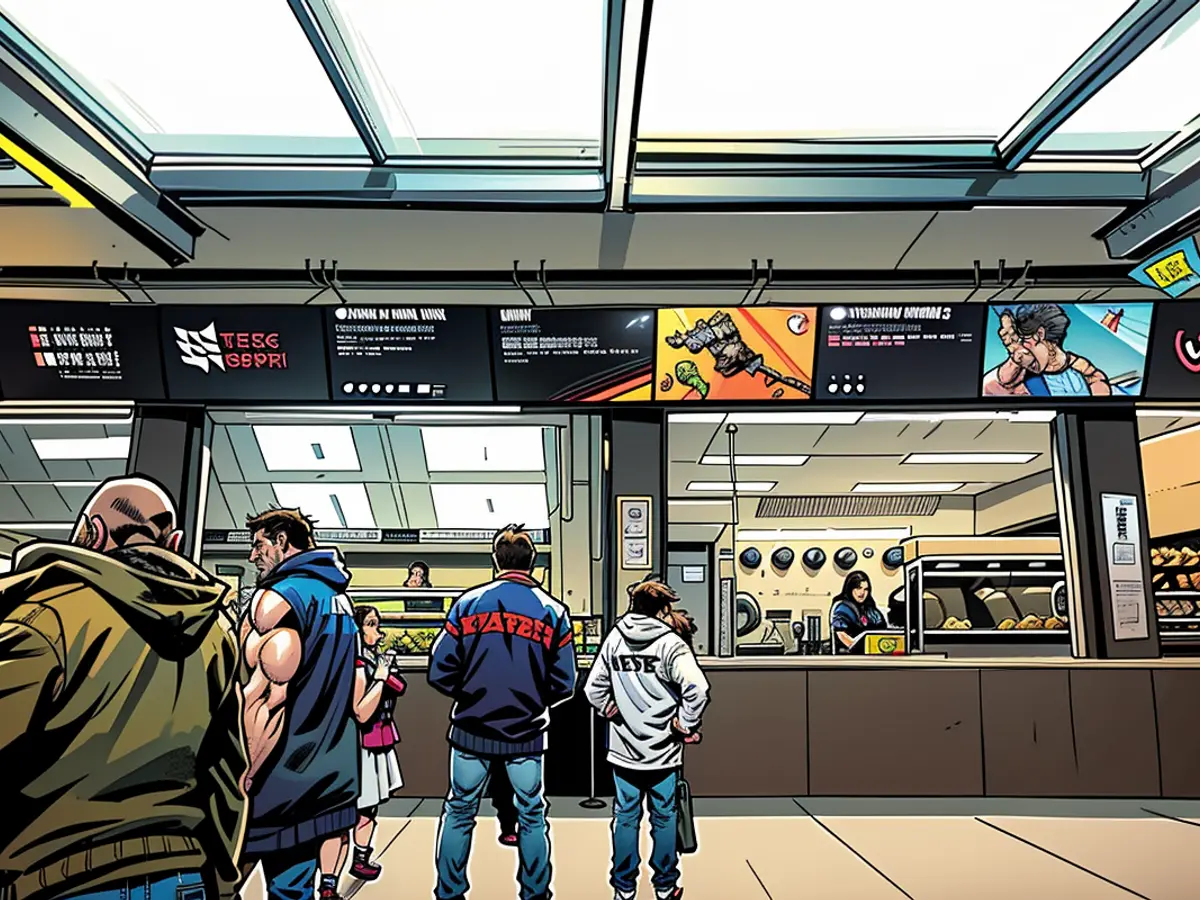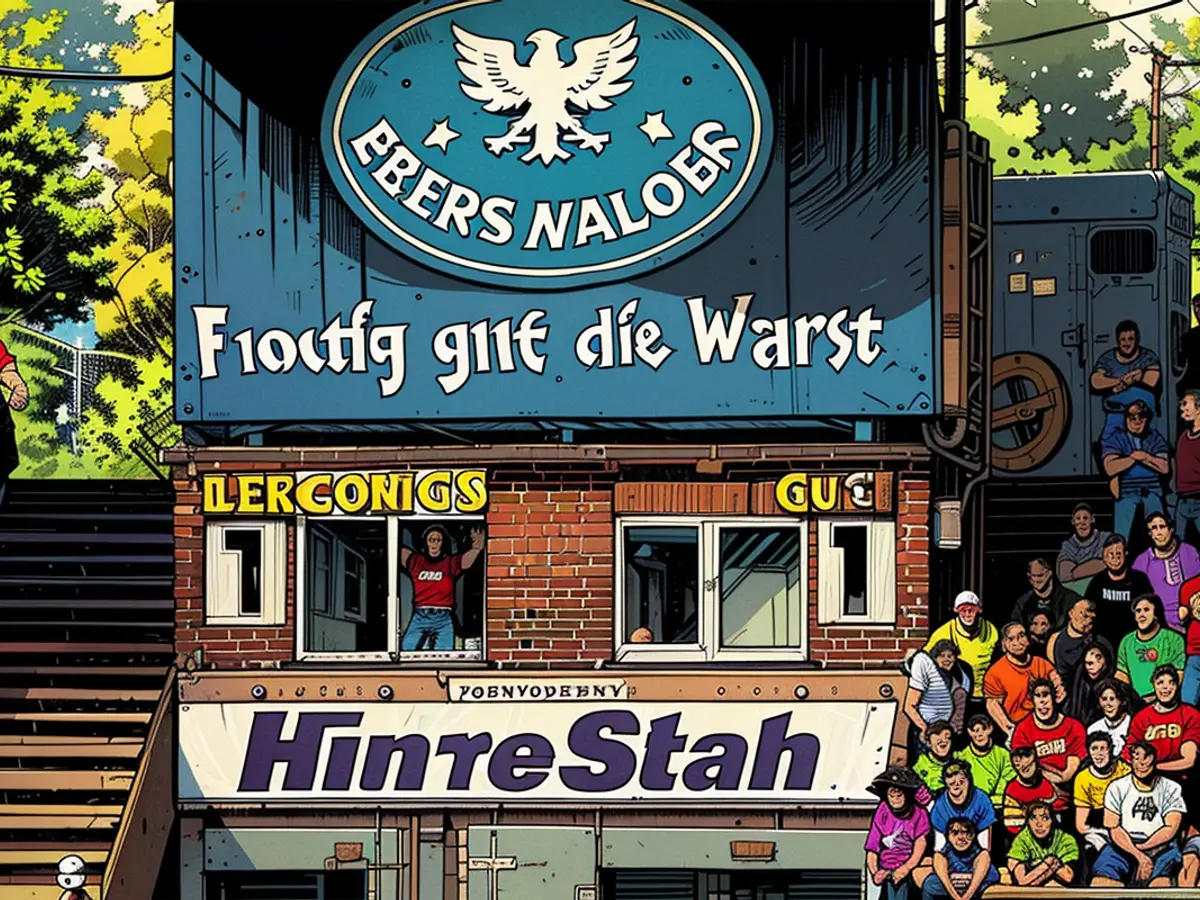Vegan Victory in Bundesliga Knows No Limits: Unprecedented Success
The delightful experience of a sports stadium no longer revolves solely around the traditional stadium sausage and beer. Bundesliga clubs now cater to various dietary preferences, including vegetarian and vegan options. Nevertheless, the beloved bratwurst remains a staple.
For several, bratwurst and beer encapsulate the essence of the stadium experience, accompanied by the unique ambiance. However, the conventional stadium sausage has slipped off the menu in German football arenas. Now, fans are presented with a variety of alternatives, be it different sausage variations, falafel, vegetarian burgers, or vegan sausages.
Recently, Philipp Lahm, the head chef for the European Championship organizing committee and 2014 World Cup captain, emphasized the importance of offering vegan alternatives within staadiums. And it seems Bundesliga clubs have heeded this call. A survey of the 18 top-tier clubs confirmed that every stadium now provides vegetarian and vegan alternatives on their menus.
Vegan choices seem to vary
A similar trend was observed in a stadium ranking conducted by animal welfare organization Peta. According to campaign coordinator Steffen Lenhardt, every Bundesliga stadium now features at least one fully vegan dish, such as falafel wraps or vegan sausages in a bun. This ensures no vegan fan goes hungry during game time.
This trend has been ongoing in the past two Bundesliga seasons. However, the degree of variety in vegan alternatives still fluctuates among stadiums. Leipzig and Dortmund lead the way with a wide array of vegetarian and vegan options. Lenhardt acknowledges, however, that there is still room for improvement in some stadiums, where vegan catering is yet to fully materialize or the products lack proper labeling.
Animal welfare grows in popularity
Regardless, Lenhardt notes, "The Bundesliga is becoming more vegan." A large middle-ground of clubs has established a solid vegan offering, driven by the increasing number of vegans in Germany, the rising awareness of animal welfare, and the recognition of the connection between animal product consumption and climate change. Flexitarians, who consciously reduce their meat intake, have also contributed to this demand for vegan products. This includes some athletes, who adopt vegan lifestyles.
According to a survey by the German Food Retail Association, around 12% of Germans now follow a vegetarian or vegan diet. 9% are vegetarians, avoiding meat and fish but eating dairy and egg products, while 3% are strict vegans, shunning all animal products. Nearly 40% identify as flexitarians, voluntarily cutting down on their meat consumption.
The bratwurst endures
Several Bundesliga clubs and stadium operators have augmented their vegetarian and vegan food offerings in recent years. For instance, BayArena in Bayer 04 Leverkusen set up a dedicated counter for vegan and vegetarian products in the fan area last season. Borussia Mönchengladbach's Borussia Park introduced vegan nuggets during the winter months, while falafel made its debut in April. VfL Wolfsburg reports a significant increase in vegan product sales, prompting them to refine each product's quality.
At Bremen's Weser Stadium, caterers too cater to vegetarian and vegan guests, expanding their offerings to accommodate this growing audience. Despite this, the traditional stadium fare – the beloved bratwurst – continues to remain popular. The caterer shares, "The classic stadium fare remains extremely popular."
Despite the rise of vegan options in Bundesliga stadiums, the traditional stadium favorite, the bratwurst, remains a crowd pleaser. Fans can now choose from a variety of vegetarian and vegan dishes, such as falafel wraps and vegan sausages, but the bratwurst endures as a staple in football league cuisine.
The vegan offerings in Bundesliga stadiums have seen significant improvements in recent years, with clubs like BayArena and Borussia Park introducing new vegan products. However, the love for bratwurst and beer remains an integral part of the stadium experience for many fans, indicating that the football league's culinary landscape continues to evolve with changing dietary preferences.









